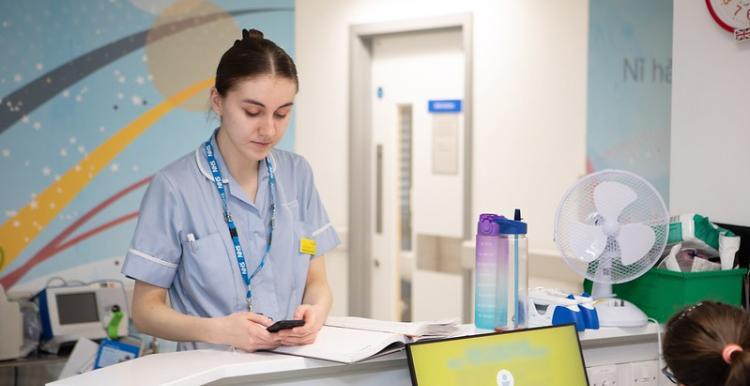How are NHS patient records managed?

Currently there is no single NHS record which keeps all your interactions with different parts of the health service in one place although the government announced last October it would like to introduce them as part of its upcoming 10-Year Health Plan. At the moment, a record is kept with each part of the NHS that you use.
The main NHS medical record that most people have is their life-long GP record, which moves with you if you change practice. Your GP record contains a history of all your immunisations, appointments, prescribed medication, diagnoses, referral letters to specialists, and test results.
You could also have a separate record held at any other NHS service that you have used through your life, such as:
- Hospitals, for outpatient appointments, operations, inpatient stays, or A&E visits.
- Community health services, like district nursing or speech and language therapy.
- NHS dental services (X-rays and appointment notes).
- Mental health services (such as community mental health or crisis teams, or mental health hospitals).
- Your pharmacy may even hold a record for you, if they’ve provided some individual consultations for minor conditions under the Pharmacy First scheme.
Can I view any of my NHS records online?
Partly. If you are 16 and over, you can view a summary of your GP records if you have an NHS log-in and have signed up to the NHS App. It will show summaries of consultations you’ve had with your GP or other staff. In most cases the consultation notes only go as far back as November 2023, when it became mandatory for practices to make these available.
The NHS App will also show medications prescribed by your GP practice, any allergies, and your NHS number. It may also show tests results and details about upcoming hospital appointments, but this varies depending on how well different services in your area electronically ‘talk to each other’.
Can I look at or get a copy of my full NHS records?
Yes. For GP records, if you don’t have an NHS login and access to the NHS App, and/or you want to view historical information, you can request from your GP surgery a print out or digital copy of your record.
At other primary care services, ask the receptionist or practice manager.
If you want to see records from hospitals, community or mental health trusts, you will usually need to contact their records department or PALS team and confirm if you are wanting information only about a particular episode of care, or all the data they hold about you.
Do I need to give a reason for requesting a copy of my NHS records?
No, you don’t need to give a reason. You have a right under the NHS Constitution to access your own records.
However, if you are trying to find just one piece of information – such as a test result - it may be quicker to ask for this than your whole record.
Your request usually needs to be put in writing or via a form, there is normally no charge [there is for ‘excessive’/repeated requests] and you should get the records within a month.
Why would some of the information in my record be hidden from me?
Health professionals can stop you seeing certain information in records, if they think it might harm you or others, identify others without their consent or relates to records of deceased people who relatives have asked to see. This is allowed under data legislation.
In these cases, the information is redacted – blanked out or hidden from view.
What happens if I find incorrect information in my record, and I want it corrected?
The NHS Constitution gives you the right ‘to have any factual inaccuracies corrected’ in your records.
Guidance is available from the NHS and the Information Commissioner’s Office (the data regulator) on how to do this.
You can make a request verbally or in writing to the health service that holds that record. You may need to provide evidence such as birth certificate or proof of address if those details are wrong.
You can also make very limited changes yourself via the NHS App, but currently only to your contact email address of mobile phone number, and it may take time for these to be synchronised with your full GP record.
Can the NHS refuse my request to amend my record?
Yes, in limited circumstances. There is ‘no obligation to amend something in your record that is a professional opinion’, according to the Handbook to the NHS Constitution. If you and your health professional disagree about the accuracy of information in your record ‘you can ask that a statement is added to make clear that you dispute it.’
What can I do if I’m unhappy about an NHS refusal to change information in my record?
You can make a formal complaint using the NHS complaints process.
If this doesn’t resolve your complaint, you can then make a complaint to the ICO.
Can different staff across the NHS see all my records so I don’t have to repeat myself?
Not at the moment - there is still some room for improvement on this.
A national database of Summary Care Records – based on information in GP records – was set up in 2010 to ensure emergency services could look up basic information about you quickly, such as your current medication, allergies, details of any previous reactions to medicines, your name, address, date of birth and NHS number.
It can now be accessed by most NHS services, but not dentists, sexual health services, care homes, home care services, or private providers.
Information categories have expanded and now mean around 57.5m summary care records include any significant medical history, reasons for medications, care plan information and immunisations.
These records can only be accessed through a web portal by authorised staff directly involved in your care.
In some areas of England, NHS bodies have funded their own shared, local record systems to improve communication between services about patient care. But this is variable and there are also challenges in sharing vital information between NHS and adult social care services when for example, a patient is discharged from a hospital to go and live in a care home.
The government wants to create a single NHS record for every patient and more details are expected to come out in its upcoming 10-Year Health Plan.
What laws and duties must health professionals follow on record-keeping?
Health and care professionals and the wider NHS must follow data protection laws on collecting, processing and storing your personal information to ensure:
- it is correct
- used only for legal purposes
- kept confidential and safe
There are some exceptions to confidentiality, such as sharing information about potential or current abuse of a child, with local safeguarding teams.
Staff also have responsibilities to follow guidance from their professional regulators, such as the Good Medical Practice chapter on record keeping from the General Medical Council, and section 10 of the Nursing and Midwifery Council’s code of practice.
However, NHS guidance acknowledges that mistakes in record keeping can occasionally happen.

